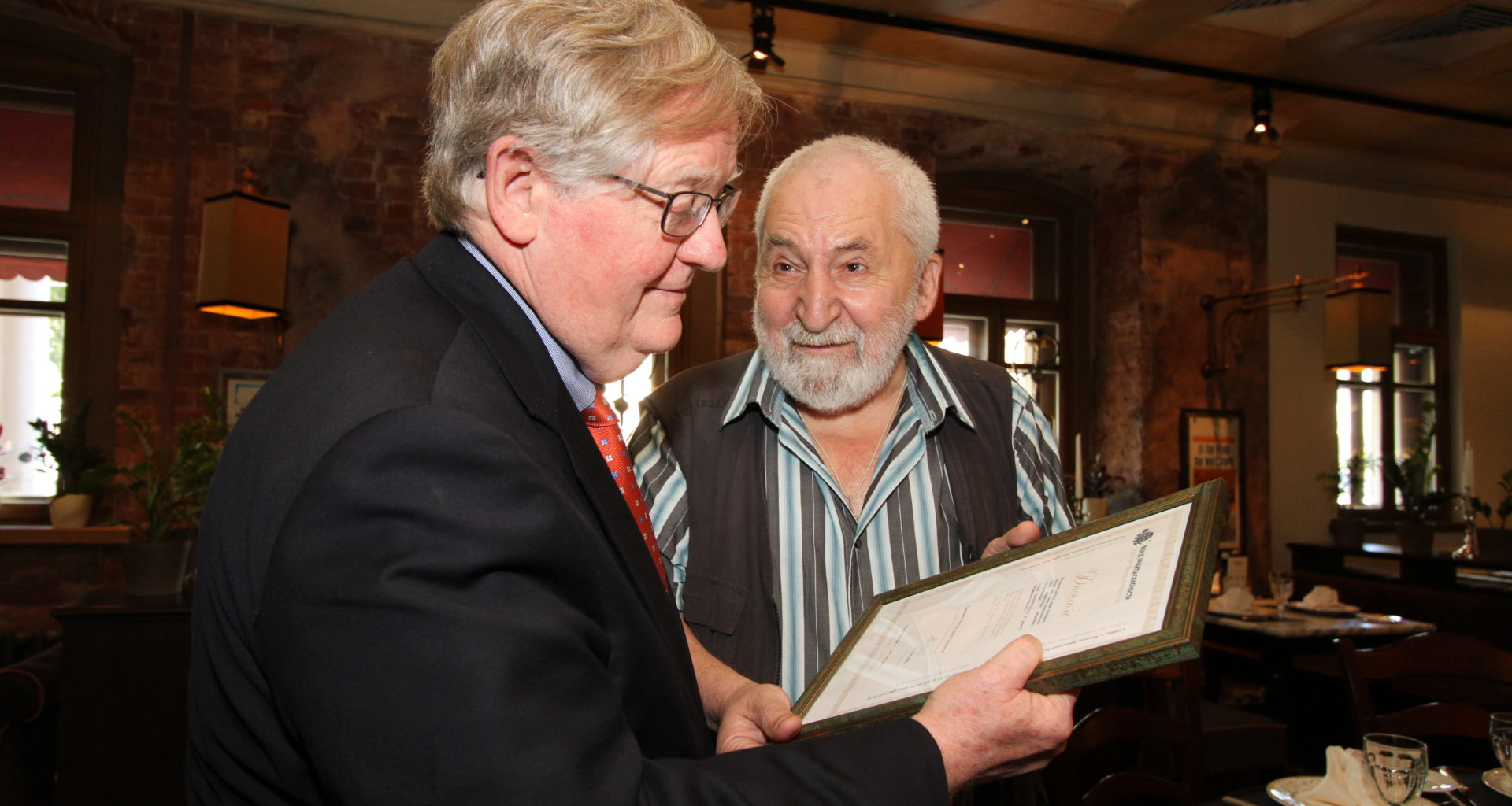BBG Watch Commentary
BBG Watch has learned from several sources that Broadcasting Board of Governors (BBG) member Victor Ashe has apologized to a journalist and to Columbia Journalism Review (CJR) for the Voice of America (VOA) management’s refusal to answer questions for an article.
Sources told us that CJR editors have received an email from Ashe, who is a former U.S. Ambassador to Poland and former mayor of Knoxville, in which he reportedly said that as a member of the governing Board he was appalled by the refusal of VOA to answer Gary Thomas’s questions for an article he was writing for CJR. Gary Thomas is a former VOA senior correspondent and news analyst.
Sources told us that Ashe wrote that the refusal to answer questions from a journalist violates Voice of America’s mission to bring different views on issues to the public. He reportedly observed that the response provided by the Voice of America Public Relations Office to Gary Thomas can be compared to what repressive regimes say when VOA or other reporters ask for comments.
Sources told us that Ashe apologized to both CJR and to Thomas and intends to meet with Thomas to apologize to him in person.
Ashe reportedly told CJR editors that VOA Director David Ensor is a former television reporter and that he had to be unaware of the rejection of the press inquiry by the Public Relations Office. Ashe reportedly wrote that he will ask Ensor to make sure that an incident like this does not happen again. Ensor is believed to be on an extended summer vacation.
Sources told us that Ashe reportedly stressed to CJR that neither he nor any other BBG member knew about Mr. Thomas’s questions and that the board members were not consulted on the response.
 In attacking journalistic skills of a former Voice of America senior correspondent who had published an article in Columbia Journalism Review outlining serious inadequacies in VOA news coverage, management and employee morale, Kyle King, a spokesman for Voice of America director David Ensor responded that “A simple look at the Voice of America’s website demonstrates we are a hard-hitting and effective international multimedia news organization. ”
In attacking journalistic skills of a former Voice of America senior correspondent who had published an article in Columbia Journalism Review outlining serious inadequacies in VOA news coverage, management and employee morale, Kyle King, a spokesman for Voice of America director David Ensor responded that “A simple look at the Voice of America’s website demonstrates we are a hard-hitting and effective international multimedia news organization. ”
In a manner typical for VOA management, executives had dismissed and refused to answer Gary Thomas’ questions for the article and later accused him through their spokesman of unspecified errors.
Gary Thomas, who for 27 years reported for VOA from such hotspots as Afghanistan and Pakistan and was a news analyst for national security issues, wrote in his article:
“VOA was offered an opportunity to comment on the issues raised in this article, and questions were submitted to the agency for response. It declined to answer any of the questions. The VOA Public Affairs Office’s response was: ‘Frankly speaking, the questions submitted by Mr. Thomas, a former VOA employee, contain multiple errors and suggest a bias that concerns us greatly. We invite those who want to evaluate the quality of VOA journalism to look at our websites or our programs that reach over 135 million people each week in 45 separate languages’.”
Later, the following comment was posted under the article by the Voice of America Office of Public Relations:
It is disappointing CJR would publish this commentary, which contains multiple errors, and calls for changes that are either unrealistic or have already been proposed by the very organization Mr. Thomas maligns.
A simple look at the Voice of America’s website demonstrates we are a hard-hitting and effective international multimedia news organization.
Our audience numbers have never been higher. They are based on VOA’s credibility as an independent news organization. In Africa, we are big on radio and mobile. In Iran, one in five adults watch us every week on TV.
There is nothing “schizophrenic” about what we do.
Times have changed from the days when newsroom journalists rewrote wire copy for shortwave radio. Today, VOA produces dozens of television programs, has nearly 50 separate websites and a wide range of mobile platforms, in addition to radio, podcasts and social media.
Audiences look to VOA for accurate and balanced news they cannot get on state controlled media in many countries, and we provide that in more than 40 languages.
Posted by Kyle King, Director, VOA Public Relations on Wed 3 Jul 2013 at 05:23 PM
Numerous former Voice of America journalists have criticized this response and described it as an arrogant and unprecedented attack on professional reputation of one of their highly respected colleagues.


BBG Governor Ashe is widely admired by journalists and other BBG employees for raising issues of mismanagement and poor employee morale.
Ashe came to the defense of dozens of Radio Liberty journalists in Russia who were abruptly fired last September by the former management of Radio Free Europe / Radio Liberty (RFE/RL).
He also had apologized to them as an individual Board member for the way they were fired and even forbidden by their former RFE/RL bosses to say good bye to their radio and online audiences of many years.
Ashe worked with other BBG members, Susan McCue and Michael Meehan, to change the management at RFE/RL.
Many of the fired journalists have been rehired.
For his defense of Radio Liberty journalists, Ashe was given the Glasnost Award from a human rights group in Russia.

Comments are closed.